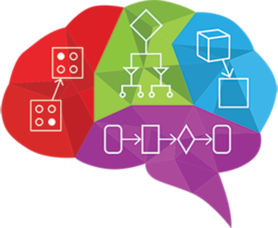Computational thinking in context

|
Computational Thinking in context: a teaching and learning trajectory for primary and secondary education
Project Radboud Universiteit |
One of the biggest challenges current educational systems face worldwide is the call for the integration of digital literacy into the curricula. When decomposing digital literacy into more specific skills, computational thinking (CT) is possibly the one most complicated. At the same time, it is key when aiming to apply the power of computing to solving problems in other scientific domains and thus pleadable to be an essential skill. Many schools in the Netherlands and abroad have started incorporating CT in their teaching, meanwhile struggling with the question how to do so in a structured and effective way, and how to facilitate their teachers. This project will support these schools through practice-oriented research, by developing suitable CT learning objectives for primary and secondary education, as well as teaching and learning strategies fostering the acquisition of these objectives. In primary school, we aim to connect CT to the general cognitive learning objectives, while in secondary school CT will be integrated into three learning domains: STEM (biology), language (Dutch) and humanities (history). Our project is designed to naturally extend an ongoing innovation project in the participating schools, providing an environment to investigate learning trajectories in primary and secondary education, as well as the transition from one to the other. An important means for both design as well as implementation is a professional learning community (PLC) of teachers and researchers, collaborating through co-design and research activities. The development of teachers’ knowledge within the PLC will inform the design of professional development activities.


